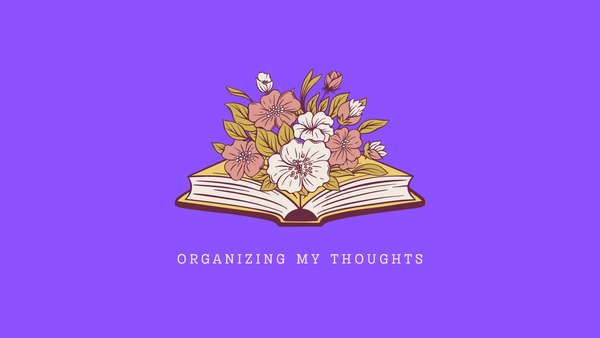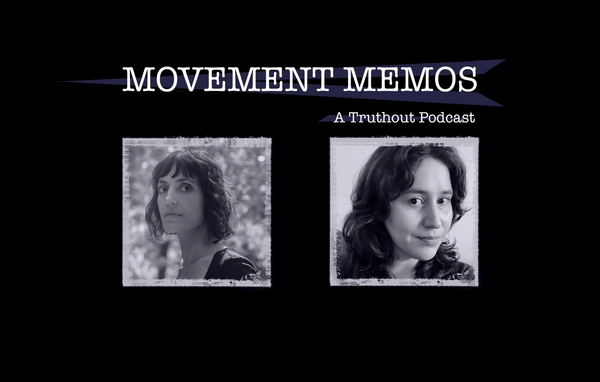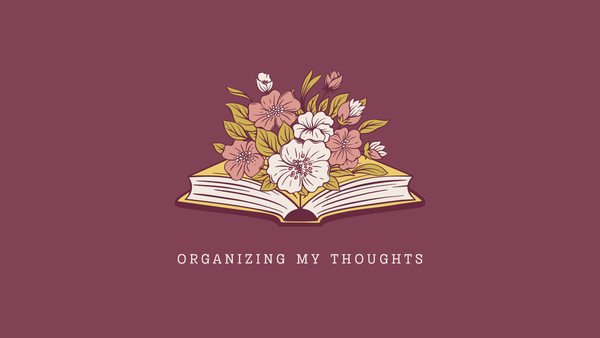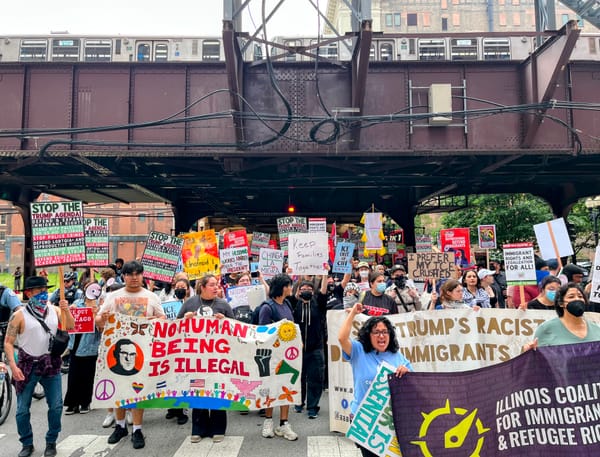Harsha Walia: "We Are Many Hands in the Struggle"
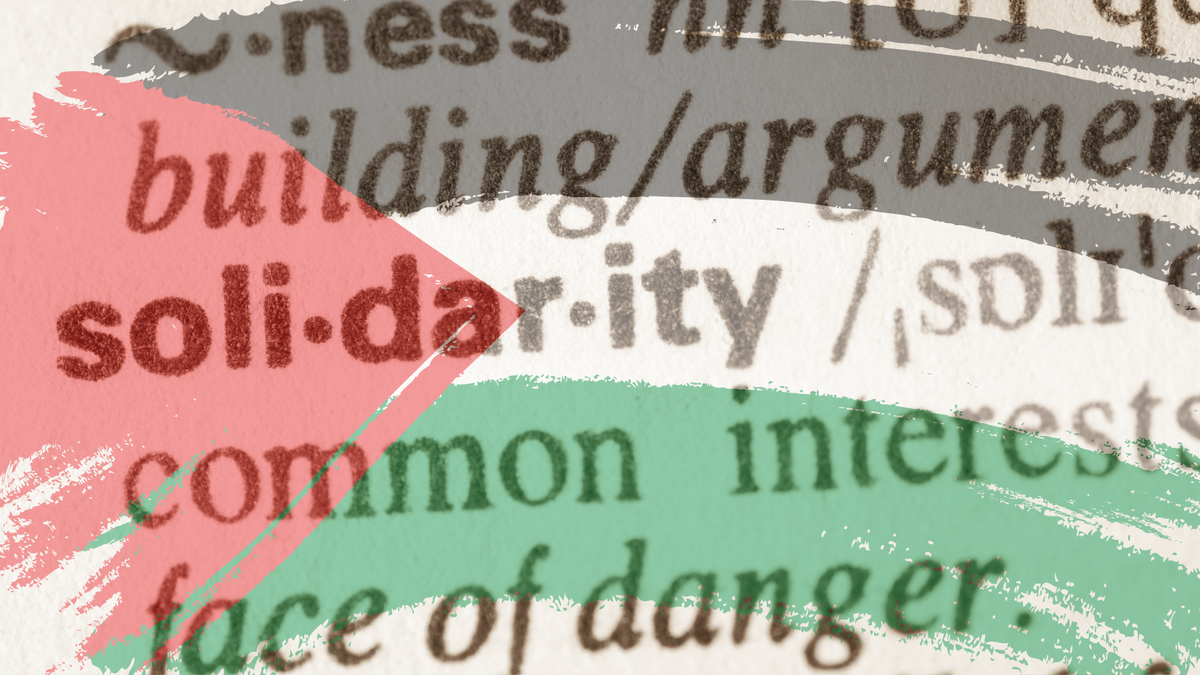
Amid Israel’s unrelenting violence against Palestinians, the Palestine solidarity movement has been unwavering in its calls to end the genocide. In the United States, it can be hard to keep track of all of the disruptions, marches, and shutdowns happening nationally. Internationally, it’s even easier to miss major events. However, on February 1, I was immediately aware of a blockade shutting down the Port of Vancouver because my friend Harsha Walia was participating and posting on social media about the action. Harsha has been fiercely committed to Palestine solidarity work in recent months, and after seeing the inspiring work her community put into the port blockade, I wanted to get her perspective on what the work looks like in her community and how the movement there has sustained its momentum.
This interview has been lightly edited for clarity.
Kelly Hayes: Can you tell us a bit about what the Palestine Solidarity Movement has looked like in Vancouver and how you've participated?
Harsha Walia: The Palestine Solidarity Movement in the West Coast truly feels like a mass movement in the sense of an incredible number of collectives and organizations and neighborhood groups who are involved in the movement with Palestinian leadership that is intergenerational from elders to youth. One of the oldest Canadian Palestinian organizers lives in Vancouver, and so we are so lucky that he is here and that we get to learn from his wisdom. He started a Palestinian organization in the '70s that used to organize as part of anti-colonial movements, third-worldist movements, Indigenous liberation struggles, and Black liberation struggles in the '60s and '70s. So the roots in this city are incredibly deep for that kind of transnational liberation work. And then, of course, continuing to now, the transnational work of the Palestinian Youth Movement. And so there's an incredibly strong legacy of this work that is continuing.
What's also quite incredible is that there are a number of neighborhood-based groups that have never really existed before in my experience. And so there are people, there are about seven or eight different neighborhood-based groups that are organizing just in their neighborhoods for Palestine and doing things like dinners to bring people out. And it's really like broader community building, of course, under the banner of ending the genocide and Palestinian liberation, but really as all organizing is also deeply committed to intersectional understandings of liberation work, of community building and relationality as central to liberation work. And so it's just been so deeply inspiring at a time of immense grief and anger to be able to come together with literally tens of thousands of people to fight to end this genocide and to be part of a global movement to free Palestine and free all oppressed peoples.
Are there direct actions or boycott efforts you've engaged with that you feel have been particularly impactful?
As we know, the BDS movement is over a decade old, called by the BDS National Movement, and the call for boycott divestment sanction strategies that we've been using really follows under the guidance and leadership of the BDS National Committee. And there are a number of important targets in Canada. One of them for us is Indigo Books and Music. And Indigo, the CEO of Indigo has a private foundation that funds foreign soldiers to go fight in the IOF. So there's a very clear link between this bookstore, this corporate chain, and the Israeli occupation forces. And so this boycott has been going on for a very long time but has really amplified since October 7th. In particular, it's also been escalated because the CEO of this bookstore has also really escalated her attacks against the Palestinian and Palestinian solidarity movement. And simply for postering in Toronto, 11 organizers are facing incredibly serious charges of conspiracy, which, for people in the US, this is very similar to the RICO indictments that have been happening around Cop City.
And so for postering, people are facing conspiracy charges, looking at really serious jail time. And so instead of that criminalization having the intended effect of squashing organizing, it has just emboldened and strengthened our solidarities. And so the movement against Indigo, especially in December during the holiday season, really ramped up across the country. In Vancouver, there were dozens of actions that shut down Indigo. So it was both effective in terms of direct action. It was also really effective in terms of educational efforts because a lot of people didn't realize the links to the IOF. And so they joined the boycott movement as individuals. And we just found out about a week ago that the quarterly profits for Indigo went down 70% just in this past quarter. And so boycotts work. We know that boycotts work, and they're part of a broader strategy, but they are a key effort to ensure that companies that profit from genocide are not able to profit from genocide without resistance.
That has been really effective. There have been a number of other direct actions. Most recently, we shut down the Port of Vancouver, and that was incredibly effective because the Port of Vancouver is the busiest port in Canada in terms of trade and shipment. And so it has been so demobilizing and infuriating to try to convince governments and states to take a position. In that sense, Canada is in a very similar role to the United States, where we have political leaders who have aligned themselves with the Zionist entity. They're part of the imperialist war machine, they side with Israel. And so we know that all our actions targeting politicians are necessary, but also, it doesn't force them to change their tune.
So, having an array of strategies that target the state, that also targets trade and commerce, such as through the Port of Vancouver, such as through BDS strategies, those are all part of how we engage in a fightback. And so we've also had direct actions targeting politicians through sit-ins and occupations of their offices. And so, it really is not a singular strategy, but the fact that all of these diverse strategies are being used through movement in order to affect some level of systemic change in state policies and also to continue to build solidarity with the Palestinian people.
You mentioned the blockade of the Port of Vancouver. Can you tell us more about that action and why this kind of economic disruption is so important right now?
Economic disruption is so important because the state and capital are entwined. We've all been inspired by different calls; when unions say that they won't handle Israeli goods like the longshore workers when we see different companies like particularly apartheid-free businesses saying that they won't deal with Zionist products, those all inspire us, right? Because we know that business is a key leverage point as it was in the anti-apartheid movement in South Africa. And so shutting down the port of Vancouver for the hours that we did in one of the busiest ports in the country that handles tens of billions of dollars of trade every single year is effective.
And what was incredibly beautiful about that was being alongside Palestinian youth who were central to that action and how they felt through that action in terms of being able to really throw a wrench into the gears of capital and state violence. We had a number of truck drivers join the struggle and join the blockade. And a lot of the port workers and truck drivers on the West Coast where I live are Punjabi Sikh drivers. And so to hear them make the connections between the farmers' protest and state violence, and to make the connections between the partition in 1947 of Punjab with the Nakba also at the same time, these are powerful moments of solidarity between communities, between workers as well.
It was a hard action. Blockades are never easy. There's an immense amount of violence. There were cars, including a car with a weapon that was threatening us, a number of cars that were literally trying to run over people on the blockade, and racist forms of violence. Being in the streets together is one of the ways in which we enact our power, our resistance, our community care, our community safety, the ways in which we learn skills, and the ways in which we show up for each other. So it's both economically disruptive. It's both an empowering stand to take amidst horrific genocide, and it also, as we know, we learn on the ground, we learn how to be together, and how to keep each other safe on the ground. And so again, it's never about a singular action, but it's about these actions as part of a broader movement, as part of how we escalate, as how we continue to build disruption and escalation and resistance and community within our movements.
Your work around Palestine solidarity has been continuous and relentless in recent months. How has your community maintained this intensity of struggle without succumbing to burnout?
I think this is a moment where so many of us have… there is no way to process this other than in community and in resistance. I can only speak for myself, but it is as it always is, but in an amplified way, to bear witness in real time to genocide on our screens. We're not meant to live like this, right? This is not how we're meant to be in this world. This is not how we are meant to be. On top of witnessing this violence in real time on our screens, we are also bearing witness to the imperialist war machine, witnessing how even powerful institutions like the UN and the International Court of Justice are futile and can literally do nothing in the face of power. And so there are literally tens of thousands of people who are carrying such deep grief and anger and love for Palestine to end this genocide, to end all genocides from Congo to Kashmir, to Puerto Rico and beyond.
And so I think what has been fueling this movement is that deep commitment, but also literally the fact that there are so many people. And so those practices of ensuring that we decentralize as much as possible, that we step in and step back when we are able, that there are many entry points into the struggle, that there are many ways of participating. We also center concepts, deeply important concepts and, ideas, and practices like disability justice to ensure that we are able to do many different things in many different ways, that we are all welcome, that there are so many ways in which we are teaching and learning. And so there's just been everything from actions to art builds to intergenerational events with children, dinners, food, all of these different kinds of things that bring us together in safe ways during a pandemic, and recognizing that we need everybody and we all need to be part of the struggle, and we are all needed, but we are not all needed in every moment.
So that's some of the ways in which we avoid burnout is by ensuring that we take care of each other, that we check in on each other, and make sure that we keep building that we are many hands in the struggle and we need all our many hands, but also sometimes our hands need to rest. And so just making sure that we take care of each other, look out for one another, and that our commitment to ending this genocide is always, it's an individual commitment, but we enact it collectively. Singularly, we can't do much, but together, we are infinitely more powerful in our ability to act and in our commitments to the struggle and the long haul and always remembering that it is the long haul because otherwise, our hearts will be broken over and over and over again.
Is there anything else you would like to share with or ask of our readers today?
Something I think about so often is this phrase around Palestine is freeing us. And I just want to extend that deep respect and gratitude to the ways in which Palestinian revolutionaries and the ways in which Indigenous revolutionaries, the ways in which Black freedom fighters, the ways in which oppressed and colonized people around the world, from Sudan to Kashmir to Hawaii and everywhere in between, have been lighting the path for the struggle. That this movement in this moment is drawing on a legacy, a long, long legacy of resistance, and that we really stand on the shoulders of so many who have been fighting for so long, who have been teaching us for so long, and that we also are learning from young revolutionaries who are relentless, who are relentless, so deeply committed and so relentless in their fire.
So just holding all the very many threads and ways of working together and that, yeah, I'm just so deeply humbled by all my comrades in the struggle, and I am so inspired and learn so much. And that being part of movements is really one of the only ways to fight back against the kind of apathy and demobilization that power relies on. So I would really encourage folks to just find your comrades, whether it's an organization, whether it's a collective, whether it's a small crew, it doesn't really matter, but finding our comrades in the struggle and contributing in whatever way makes sense.
There's no singular way to contribute. We're all part of this ecosystem of resistance, but doing it alongside other people is the way that we continue to grow liberation movements because we cannot do this alone. We cannot do it in terms of our capacity. We cannot do it in terms of what the system wants us to be, which is this hyper-atomized, individualistic kind of approach to movements. That's not going to work. We need each other, we deeply need each other in every way possible. And so really find comrades, find kin, find accomplices, and be part of this movement and any and all movements for liberation in whatever way that you're able to.

